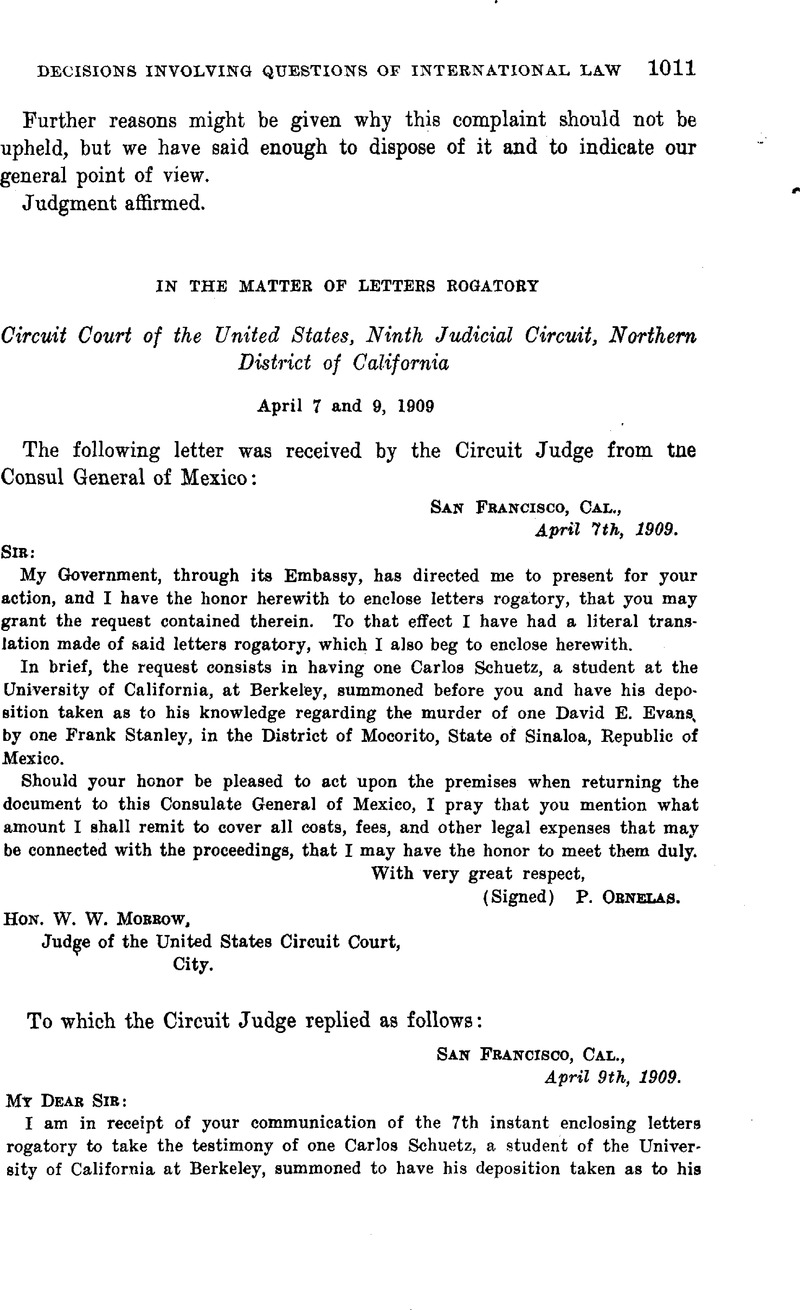Common Obstacles Faced When Implementing Letters Rogatory Requests
Common Obstacles Faced When Implementing Letters Rogatory Requests
Blog Article
Letters Rogatory Explained: Facilitating Legal Teamwork In Between Countries

Interpretation of Letters Rogatory
Letters rogatory are formal demands made by a court in one territory to a court in another jurisdiction, looking for help in acquiring evidence or statement for a lawful proceeding. This procedural system is important in the context of worldwide legislation, where legal systems might vary, and cross-border participation is needed. Letters rogatory assist in the gathering of details that might be important for adjudicating cases, especially in instances involving complex global issues.
Generally, these requests emerge in civil, criminal, or management matters where a celebration calls for proof that lies outside the jurisdiction of the asking for court. The letters function as a means to make sure that the principles of due procedure are supported, allowing courts to access proof that might otherwise stay inaccessible because of legal or geographical obstacles.
The use of letters rogatory is regulated by worldwide treaties, bilateral agreements, or domestic legislations, which define the treatments and obligations of the courts involved. It is necessary to note that the implementation of such requests is not ensured; they depend upon the legislations and methods of the territory obtaining the letter. Thus, letters rogatory are a critical tool for cultivating legal participation and ensuring justice throughout boundaries.
The Process of Issuing Letters Rogatory
Issuing letters rogatory involves a structured process that ensures compliance with both domestic and global lawful requirements. At first, the requesting celebration, commonly a court or lawful authority, prepares an official demand describing the nature of the assistance looked for, the evidence or information needed, and the lawful basis for the request. This record must be exact to assist in understanding by the international jurisdiction.

The next action includes transferring the letters rogatory to the designated foreign authority. This is usually done with polite networks or international legal support frameworks, making sure that the demand is received and acknowledged by the international court. The international court then processes the demand according to its very own lawful treatments, ultimately replying to the requesting event with the popular info or evidence, thus promoting worldwide legal cooperation.
Value in International Legislation
The importance of letters rogatory in global law can not be overstated, as they offer as a crucial device for judicial participation across borders. These official demands for aid in lawful issues permit courts in one territory to seek info, evidence, or the visibility of witnesses from one more territory, thereby assisting in the administration of justice in multinational instances.
Letters rogatory are particularly crucial in the context of globalization, where lawful disputes commonly extend multiple nations. They allow the collection of proof that could or else be inaccessible, ensuring that lawful proceedings are educated and reasonable. By fostering collaboration in between judicial systems, letters rogatory help copyright the guideline of law and promote common respect among countries.
Furthermore, using letters rogatory demonstrates a dedication to international standards and concepts of teamwork, reflecting the interconnected nature of modern-day lawful methods. It illustrates the relevance of adhering to well-known treatments and treaties, such as the Hague Convention, which offers a structure for these requests - Letters rogatory. Eventually, letters rogatory enhance the efficacy of lawful processes, making sure that justice is not hindered by geographical limits
Obstacles and Limitations
In spite of their relevance, letters rogatory face a number of obstacles and limitations that can restrain their performance. One primary concern is the varying legal frameworks and procedures throughout territories, which can cause misunderstandings and hold-ups in the execution of demands. Various nations may have distinctive requirements for the legitimacy of letters rogatory, making complex the procedure further.
In addition, the typically lengthy nature of international lawful teamwork can hinder timely access to evidence or witnesses. This delay may additional info detrimentally influence lawful procedures or ongoing investigations, especially in cases calling for immediate action. The absence of resources and training in some jurisdictions can result in insufficient handling of demands, leading to insufficient or insufficient responses.
Countries with much less formal lawful systems may battle to conform with the step-by-step rigor expected in letters rogatory. These challenges necessitate constant dialogue and reform to improve the efficiency of letters rogatory in lawful collaboration.
Study and Examples

On the other hand, difficulties can develop, as seen in a situation entailing a European country seeking evidence in a recurring criminal issue from a non-EU country - Letters rogatory. The process was delayed due to governmental difficulties and varying lawful criteria, ultimately hindering the examination
These examples highlight that while letters rogatory can assist in global participation and quicken lawful procedures, they also highlight the demand for clear communication and understanding of legal structures in between countries. Such instance studies highlight the value of refining this device to improve performance and effectiveness in international legal matters.
Verdict
In summary, letters rogatory function as an essential device for helping with lawful collaboration in between nations, making certain the collection of evidence and testimony throughout jurisdictions. Their significance in international regulation can not be overstated, as they promote due procedure and enhance the effectiveness of cross-border lawful proceedings. Difficulties such as varying legal frameworks and political tensions may hinder their efficiency. Continued initiatives to improve and improve the process are crucial for promoting stronger worldwide judicial cooperation.
Letters rogatory are formal demands made by a court in one jurisdiction to a court in one more jurisdiction, seeking assistance in acquiring evidence or testimony for a lawful proceeding. The asking for party, generally a court or lawful authority, composes an official demand describing the nature of the assistance looked for, the proof or information required, and the legal basis for navigate to this website the request. The international court after that refines the demand according to its own legal procedures, inevitably reacting to the asking for celebration with the sought-after info or evidence, hence helping with international lawful cooperation.
Additionally, the use of letters rogatory shows a commitment to global standards and principles of participation, mirroring the interconnected nature of modern-day lawful methods.International legal teamwork with letters rogatory is not without its real-world ramifications, as illustrated by various case researches that highlight both difficulties and successes.
Report this page